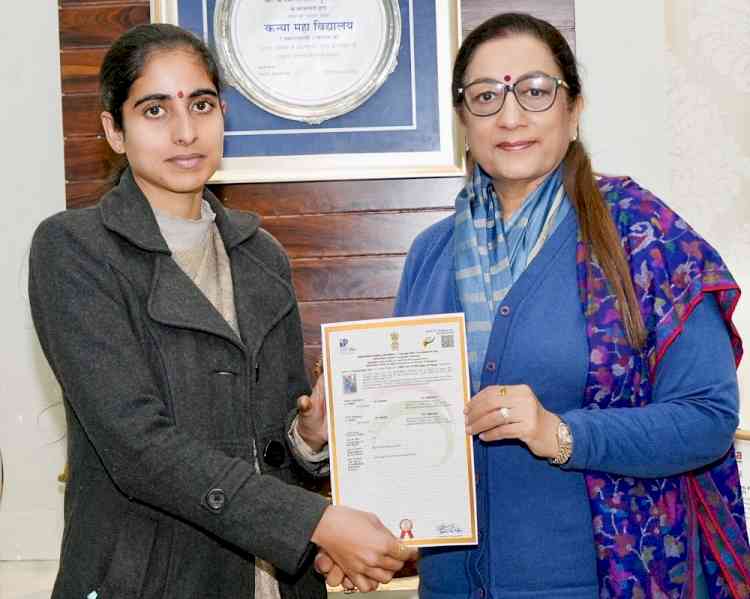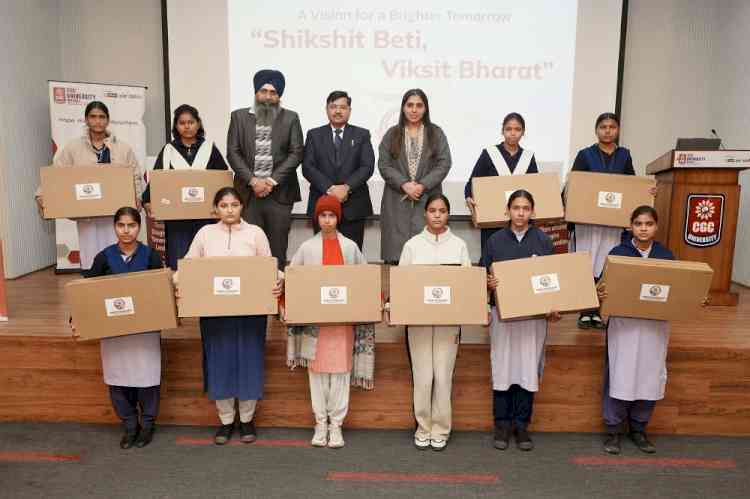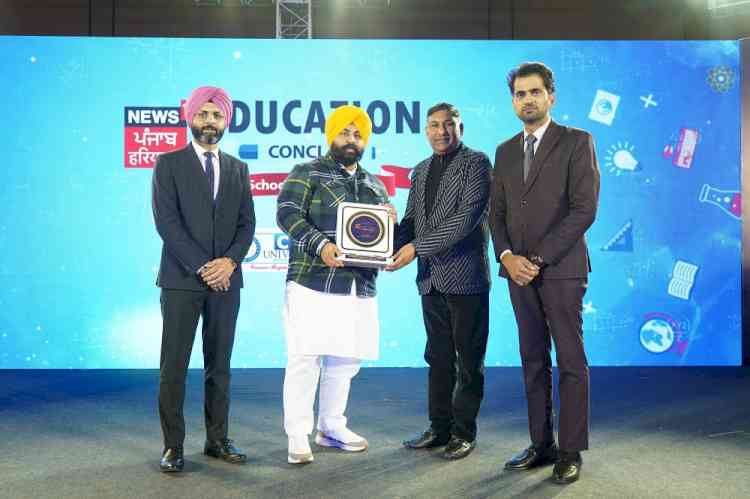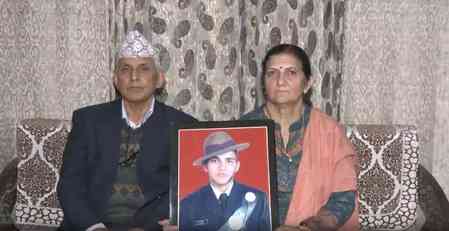Amazon Future Engineer Program expands to include AI in 54 Eklavya Model Residential Schools
Amazon.in today announced expansion of its partnership with National Education Society for Tribal Students (NESTS) under Ministry of Tribal Affairs, Government of India launch Amazon Future Engineer program in 54 Eklavya Model Residential Schools (EMRS) across the states of Andhra Pradesh, Gujarat, Madhya Pradesh, Odisha, Rajasthan and Telangana. The partnership is being expanded from computer science fundamentals module to include Advanced Block Programming and Artificial Intelligence. The module will now be taught to students of class six to nine.
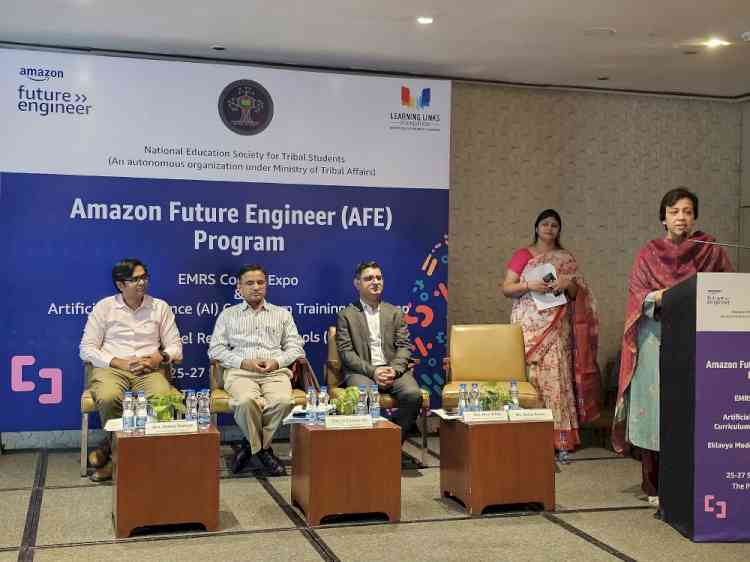
Hyderabad, September 26, 2023: Amazon.in today announced expansion of its partnership with National Education Society for Tribal Students (NESTS) under Ministry of Tribal Affairs, Government of India launch Amazon Future Engineer program in 54 Eklavya Model Residential Schools (EMRS) across the states of Andhra Pradesh, Gujarat, Madhya Pradesh, Odisha, Rajasthan and Telangana. The partnership is being expanded from computer science fundamentals module to include Advanced Block Programming and Artificial Intelligence. The module will now be taught to students of class six to nine.
Based on the encouraging results of last year’s implementation, the revised module will introduce a customized coding and artificial intelligence (AI) curriculum that is aligned with CBSE skill education. This will be in addition to the current courses in coding, logical sequencing, learning loops, and block programming. The 20-hour module is constructed taking into account the current exposure of tribal students to computer science and coding. Class six students will be taught the fundamentals of computer science, seventh standard will be introduced to the advanced concepts of visual programming; grade eight will get introductory exposure sessions to AI; and grade nine will learn the fundamentals of AI. For grade 10, the AI module aligned with the CBSE skills curriculum will be introduced in the academic year 2024-25.
The program has been designed in collaboration with the Learning Links Foundation (LLF) and focuses on enhancing access for underprivileged students to explore computer science education and careers. Under this program, coding courses, scholarships, and internships are offered while collaborating with several organizations and ministries, including the Ministry of Tribal Affairs. In addition to this, they work with educators and provide professional development support and resources to teachers so as to facilitate effective computer science learning. In addition to the computer science learning, Class Chat Sessions are conducted by Amazon employees who help students understand various careers in tech industry and how to get there.
The Ministry of Tribal Affairs has set up Eklavya Model Residential Schools in order to provide quality education to tribal students in various states. The National Education Society for Tribal Students plays an important role in the establishment, management, operations and maintenance of the EMRSs.
Arjun Munda, Minister of Tribal Affairs, Government of India who launched the program’s pilot phase, said, “Amazon Future Engineer Program initiative is a huge step towards ensuring that the succeeding tribal generations become well-equipped to leverage digital opportunities. Collaboration between Amazon Future Engineer program and NESTS, has the potential to bridge the academic gap existent among tribal communities, ensuring their successful careers in emerging technologies.”
Akshay Kashyap, India Lead, Amazon Future Engineer, Amazon India said, “In the last two years, 1.4 million students from over 8,000 government schools in eight states have explored and learnt computer science through Amazon Future Engineer. The scope of our partnership with NESTS was limited to students of class six to eight, which has now been extended to the students of class nine and is also including AI. It is tailored with a project-based learning pedagogy that is integrated with themes such as Sustainable Development Goals (SDGs). This partnership is very close to Amazon Future Engineer’s mission of bridging the gap between talent and opportunity when it comes to future skills and computer science education. The program has potential to scale to all EMRS schools and help the students achieve their potential and build a better world for themselves and all of us.”
The pilot phase that was launched the previous year has trained over 7,000 students from grades six to eight on the fundamentals of computer science and block programming modules. To make the students ready for the ever-expanding technological landscape, it is pertinent that educators be well-equipped with the right knowledge and resources. More than 50 teachers were trained through a 2-day capacity-building workshop followed by periodic virtual sessions.
Kumud Sharma, a teacher from EMRS Sailana Ratlam, MP, said, “The Amazon Future Engineer program is immensely beneficial for both teachers and students. It provides access to computer science education to students who typically lack such opportunities, thereby increasing their chances of making an exceptional career. This initiative is also a stride towards the inclusion of tribal communities into the social blanket of the country.”
Amazon Future Engineer is a computer science education program that allows all young people to explore their potential and build a better world for us all. As a childhood to career program, AFE offers programming that starts with primary schooling and continues through secondary into career. Throughout, Amazon partners with organizations that share its mission and create opportunities for students to discover the richness of computer science through intersections with self-expression, social justice, sustainability and more.
Amazon introduced the AFE in India in 2021 and has partnered with several education-focused non-profit organisations including Leadership for Equity, Learning Links Foundation, Pi Jam Foundation, American India Foundation, Code.org, Educational Initiatives, Peepul, The Innovation Story, NavGurukul and Foundation for Excellence; to engage with students and provide them critical learning opportunities. Through this extensive partner network, Amazon has also engaged with key government bodies, policy makers, teachers and the management of thousands of government schools to implement the AFE program in Delhi, Haryana, Uttar Pradesh, Bihar, Madhya Pradesh, West Bengal, Maharashtra, Karnataka, Odisha, Tamil Nadu and Telangana.


 City Air News
City Air News 
